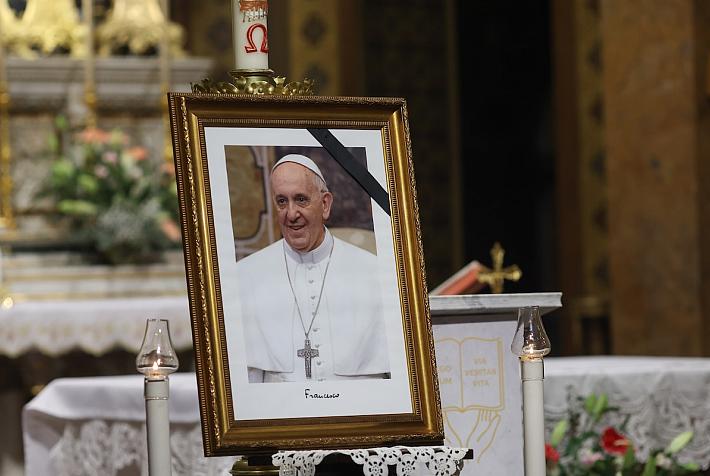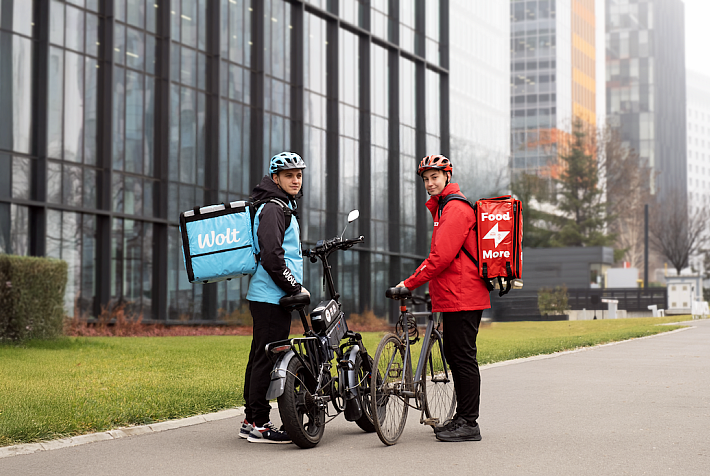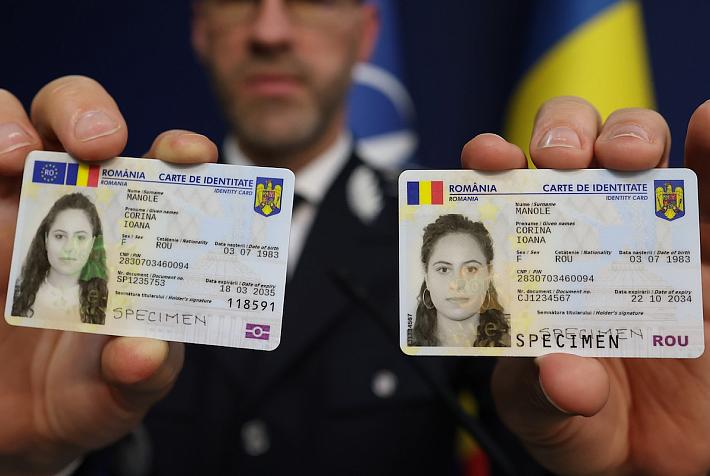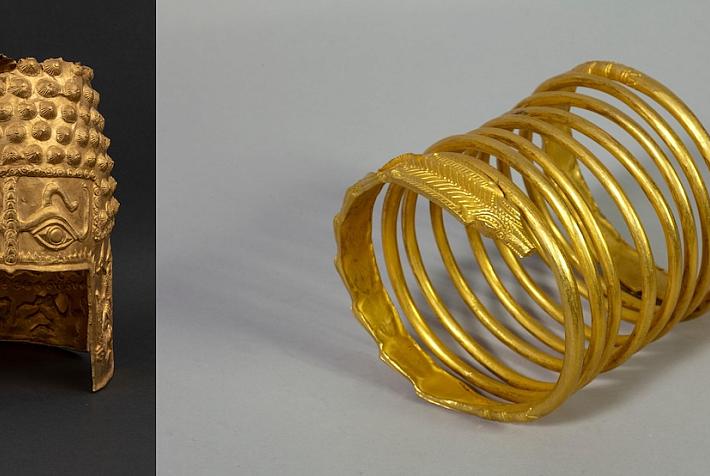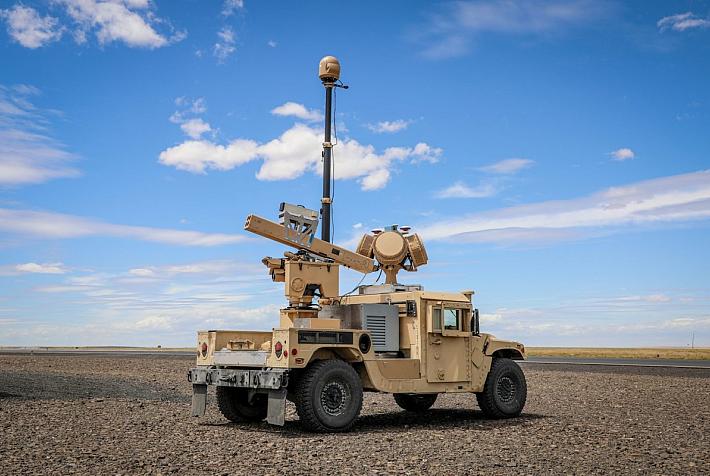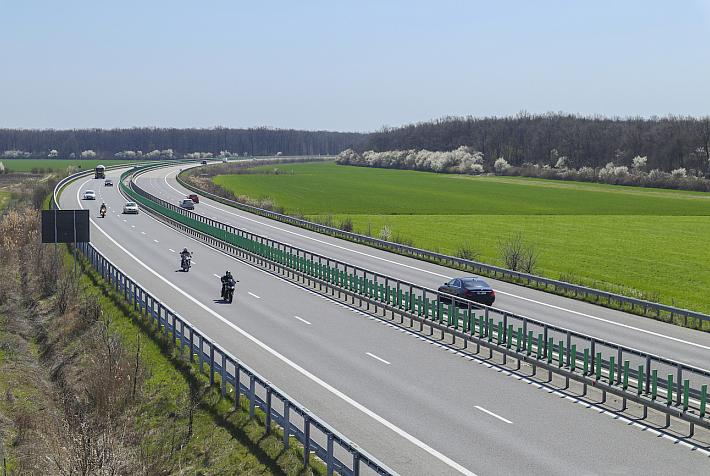Update - Romania's 2025 elections: Who is running for president?

After the Constitutional Court’s unprecedented decision to annul the results of last year’s presidential elections because of suspicions of foreign interference in the process, voters are asked again to cast their ballot to elect the person who will serve as president for the next five years.
While the line-up of candidates is slightly shorter than last year, with 11 candidates instead of the 14 in November of last year, many of those who were on the ballot last year are running again. The notable absence is last year’s surprise winner of the first round, the Russia-friendly Călin Georgescu, who was barred from running in this year’s election. Georgescu, who was leading the polls prior to being excluded from the race, is under judicial supervision facing multiple charges, including of inciting to actions against the constitutional order and involvement in or support of fascist, racist, or xenophobic organizations. Issues were also raised concerning his campaign funding after he declared zero spending last year.
The electoral race has also seen the comeback of two veterans of local politics. Crin Antonescu, a former president of the National Liberal Party (PNL) who has been largely absent from public life in the past ten years, is now the ruling coalition candidate. The Social Democrat Party (PSD), the largest parliamentary party, supports him as, for the first time in its history, it doesn’t have its own candidate. Meanwhile, Victor Ponta, a former PSD president who has been excluded from the party, has entered the race as well, this time as an independent, and pundits expect him to attract a part of the PSD voters who were expecting a candidate from their party. More on who is part of this year’s race below.
Update (April 9): USR announced the party's National Bureau decided, with only two votes against, to support Nicușor Dan in the presidential race. The party's National Political Committee is to meet on April 10 to validate the decision. In her turn, Elena Lasconi said she would not withdraw from the race.
Elena Lasconi
Save Romania Union (USR)
The former journalist turned mayor of the town of Câmpulung, in southern Romania, has managed to surpass PSD's Marcel Ciolacu in the first round of last year's presidential elections, and would have faced ultra-nationalist candidate Călin Georgescu in the second round, had the Constitutional Court not annulled it. She worked for more than 20 years at TV station ProTV as a reporter, producer, and war correspondent before taking the route of politics. The current president of the Save Romania Union (USR) ran in 2020 for mayor of Câmpulung Muscel in a campaign focused on transparency, anti-corruption, and community development. She won the elections with 57% of the vote, marking a significant victory in the city's local administration. She was re-elected last year with approximately 70% of the vote. As a presidential candidate, she advocates for systemic reforms, emphasizing the rule of law, economic development, and a business-friendly environment.
She became the president of USR after the resignation of Cătălin Drulă following the party's disappointing results in the local and EU Parliament elections. She was planning to run in the EU Parliament elections, but the party withdrew its support for her after she admitted to voting "yes" in the 2018 referendum to change the definition of family in the Constitution as a union between a man and a woman from the current union between spouses. This stance conflicted with USR's position, which opposed the referendum.
After the first round, she sent a letter to Donald Trump, where she outlined her disappointment with the annulment of the elections, pointed to the danger Russia posed, and positioned herself as the "candidate of all who love freedom" and not "Soros' candidate." The need for such a clarification arose as an X post from Trump Jr characterized the annulment of the elections as "another Soros/ Marxist attempt at rigging the outcome & denying the will of the people." She has since said she would tell the letter's entire story once Trump's term ends. Last month, she announced she was willing to drop the presidential race if interim president Ilie Bolojan became the candidate of the pro-European parties, namely the ruling coalition, USR, and several other non-parliamentary parties. The ruling coalition stuck to its candidate, Crin Antonescu, and Lasconi remained in the race.
Nicușor Dan
Independent, supported by Forţa Dreptei/ Force of the Right and People's Movement Party
Dan announced his presidential bid last December, as the country was still reeling from the shock of the first round results and its unprecedented annulment. Dan, who won a second mandate as Bucharest mayor last June with more votes than he gathered in his first mayoral win (42.8% of the votes in 2020 and 47.9% in 2024), had just managed to get Bucharest residents' approval to increase his oversight of construction permits in the city and equip him with a bigger budget at a referendum held on the same day as the first round of the presidential elections.
Upon announcing his bid, he said he was open to receiving the support of pro-European parties, but only Forţa Dreptei, headed by former PNL leader Ludovic Orban, and the People's Movement Party (PMP) decided to support him. Save Romania Union (USR), which he co-founded, decided to go ahead with Elena Lasconi's candidacy. The two parties supported his bid for Bucharest mayor last year as well, alongside USR. The National Liberal Party (PNL) and the Save Romania Union USR-PLUS Alliance supported Dan's city hall candidacy in 2020.
A mathematician who earned his Ph.D. at Université Paris XIII (Sorbonne Paris North University) and worked as a researcher at the Romanian Academy's Simion Stoilow Mathematics Institute, Dan made a name for himself as a civic activist before running for public office. He founded Asociația Salvați Bucureștiul (Save Bucharest Association), a non-profit working to preserve the city's architectural heritage and green areas from chaotic development. In 2015, he launched the political platform Uniunea Salvați Bucureștiul (Save Bucharest Union), which later became the Save Romania Union (USR). He was a deputy in Romania's Parliament between 2016 and 2020. He left the party as it voted to take a stand against the 2018 referendum that attempted to change the definition of marriage in Romania's Constitution. Dan was in favor of keeping the doors open to both conservatives and progressives, and argued that USR was voted by people who were in favor and against the referendum alike.
Dan runs on a platform outlining three main problems: malfunctioning institutions, captured by interest groups that replaced competence with party affiliation and loyalty; a lack of direction as there is no clear path or goal set out for the country; and a lack of self-trust, fed by division and legitimate concerns that politicians have ignored only to become fuel for ultra-nationalist proposals.
Crin Antonescu
Romania Forward Electoral Alliance (PSD, PNL, UDMR)
After ten years away from the spotlight and fifteen years since his first presidential bid, Antonescu returned as the candidate of the governing coalition, made up of the Social Democrat Party (PSD), the National Liberal Party (PNL), and the Democratic Alliance of Hungarians in Romania (UDMR). A historian by training, he taught the discipline before entering politics as a member of the National Liberal Party in the 1990s. He went on to become a deputy in Romania's Parliament in 1992, and served several mandates until 2008. He served as the minister of Youth and Sports between 1997 and 2000 in the government of the Romanian Democratic Convention (CDR), an alliance of historical parties that re-emerged after the 1989 Revolution, like PNL or the Christian Democrat Peasant Party (PNȚCD), alongside various other civic organizations. In 2009, he won the internal elections to become the president of PNL and, the same year, ran for president. He came out third, behind Traian Băsescu and Mircea Geoană, and supported the PSD candidate, Geoană, in the second round.
Two years later, the party he was leading entered an alliance with the Conservative Party, a precursor of today's Social Liberal Humanist Party (Partidul Umanist Social Liberal), whose more prominent leader today/ on whose lists ran former Bucharest District 5 mayor Cristian Popescu Piedone, today the head of the Consumer Protection Agency (ANPC). The agreement between the two parties resulted in the establishment of the Center Right Alliance, which later partnered with the PSD, led by Victor Ponta, another presidential candidate, to form the Social Liberal Union (USL). The alliance, gathering parties at the right and left of the political spectrum, similar to today's running coalition, voted to impeach then-president Traian Băsescu and to organize a referendum to dismiss him. As he was president of the Senate at the time, Antonescu briefly became interim president. The turnout to the referendum did not meet the validation threshold, so it was rendered invalid, allowing Băsescu to return to his presidential post.
Antonescu, who is married to former EU Commissioner for Transport Adina Vălean, said on his platform he would work to unite the country as unity is needed for any future endeavors, strengthen it - so that the country would find support in its own strength and resources. At an electoral rally in Craiova on April 5 he said he would present a plan for the country the following week, Gazeta de Sud reported. The plan would include measures to strengthen the country's economy, defense, and institutions.
George Simion
Alliance for the Union of Romanians (AUR)
After finishing fourth in last year's presidential elections, with 13.8% of the votes (below his party's Parliamentary elections score of 18.3%), the leader of the Alliance for the Union of Romanians (AUR) said he would no longer run for president but instead would support the ultranationalist, pro-Russian Călin Georgescu. When the latter was barred from running again, he decided to enter the race, as did Anamaria Gavrilă, the president of another ultra-nationalist party POT, which at last year's elections managed to make the threshold for entry into Parliament. Gavrilă eventually decided not to run, turning Simion into the main candidate for those who would have voted for Georgescu, and his own electorate. Many recent polls have shown him as gathering the most votes in the first round, thus securing a spot in the second round.
The co-founder and leader of AUR, a party promoting nationalist and Eurosceptic stances, has been a deputy since 2020, when his party delivered an unexpected result and managed to pass the threshold for entering the Parliament with more than 9% of the mandates. Before being elected as an MP, he ran as an independent in the 2019 elections for the European Parliament. He is a graduate of the Business Administration Faculty of the University of Bucharest and of an MA program at the Alexandru-Ioan Cuza University in Iași. He supported the Family Coalition, the group of organizations that promoted the 2018 referendum to amend the definition of marriage in the Romanian Constitution as the union between a man and a woman rather than between spouses. Last year, a plan to build up to 1 million apartments to be sold at prices of EUR 35,000 has been high on his list of electoral promises, alongside one to help those who face increased interest rates on their mortgages.
After the second round was annulled, he organized several large protests in Bucharest, and, upon announcing his presidential bid alongside Anamaria Gavrilă, he spoke of exerting pressure to revert to last year's second round - Turul doi înapoi/ Back to the second round has become a slogan for the local sovereignist parties.
He submitted his candidacy at the Central Electoral Bureau accompanied by Mateusz Morawiecki, the former PM of Poland (2017-2023) who is currently the president of the European Conservatives and Reformists Party (ECR), previously headed by Italian Prime Minister Giorgia Meloni. Simion is a VP of the party. Simion explained at the time the objective is "the return to democracy and normality" and said the May elections are important "so that no one can steal our vote, our country."
Victor Ponta
Independent
A former president of the Social Democrat Party (PSD) between 2010 and 2015, Ponta was the country's prime minister from 2012 to 2015. A graduate of the Law Faculty of the University of Bucharest, he was appointed by former PM Adrian Năstase as head of the Government's Control Body in 2001. Two years later, he was elected president of PSD's youth organization and party VP. He became an MP in 2004, and afterward the leader of PSD. He was head of the PSD when it was part of the coalition (USL) that attempted to impeach president Traian Băsescu.
In 2014, he ran for president and won the first round against PNL's Klaus Iohannis but lost the second round after a large turnout of the diaspora voters. He remained the party's president and in office as PM a few months after, when he resigned following the Colectiv club fire.
After taking the side of then PM Sorin Grindeanu, as PSD voted to pass a no-confidence motion against its own government, Ponta ended up being excluded from PSD. He co-founded the party PRO Romania, which made the electoral threshold at the EUR Parliament elections in 2019 but not in Romania's parliamentary elections in 2020. In 2023, PM Marcel Ciolacu appointed him an advisor for international trade relations, and, a year later, the party offered him a place on their parliamentary list, making him an MP for a fifth mandate. He was excluded again from PSD after criticizing the party's and the coalition's decision to back Crin Antonescu for president and eventually deciding to run himself.
His electoral program, titled Romania First, proposes life imprisonment for drug trafficking and grand corruption, references Romania's food independence, and "respect and dignity for military and the police." He also plans to convince Romanians living in the diaspora to return to the country and would like to see more young people getting involved in politics. Another project mentioned is the Romania – US Mihail Kogălniceanu strategy, described as "the number 1 project in our strategic partnership. As long as we have this partnership, Romania is a safe country and Russia, which remains the main enemy of Romania and Europe, cannot threaten Romania." The Mihail Kogălniceanu Air Base, located near Constanța, in southeastern Romania, has a significant US military presence. It is supposed to become the largest NATO military base in Europe.
Daniel Funeriu
Independent
Funeriu entered local politics upon his return from Romania in the mid-2000s. He had studied Chemistry at the University of Strasbourg, where, in 1999, he earned his PhD in Chemistry. He held research positions at institutes in California, US, and Amagasaki, Japan, and in 2006, he joined the Technical University Munchen 2006 on a Marie Currie Excellence Grant. In 2009, he became a member of the European Parliament, on the lists of the Liberal Democratic Party, a splinter from PNL. In 2009, he was appointed the Minister for Education, Research, Youth, and Sports in the government of Emil Boc, today the mayor of Cluj. As education minister, he implemented a reform that brought a new education law, new research legislation, and measures like having video-camera surveillance at the high-school graduation exam (Baccalaureate) to prevent cheating. His mandate ended when PM Boc resigned in 2012, following protests against the austerity measures introduced at the time. He returned to his research career, this time at the Institut Charles Sadron in France. In 2023, he became an EU High-Level Adviser to the Moldova Government, with a mandate extending to 2025. A credo on his website speaks of his belief in "a Romania of ethics and dignity, guided by the compass of our cultural, religious, and humanistic heritage," one that is "listened to and admired in Europe and the world." The same credo mentions the importance of education as "the safest way to success," the need for a well-organized state, that inspires trust, and the respect for the rule of law, among others.
Lavinia Șandru
Social Liberal Humanist Party (PUSL)
Șandru, a graduate of the Theater Academy in Târgu Mureş, has worked in radio and television before entering politics in the early 2000s in the communication department of the Democrat Party (PD), later absorbed into the Democratic Liberal Party (PDL), a vehicle associated with former president Traian Băsescu, and also served as president of PD's Târgu Mureș branch. In 2004, she became a member of Parliament, elected on PD's lists, but beginning in 2005, she became an independent MP. The same year, she co-founded alongside Cozmin Gușă, a former general secretary of PSD, the National Initiative Party (PIN). In 2011, PIN merged with the National Union for Romania's Progress (UNPR), a party established by Gabriel Oprea, a former PSD member who held various ministerial positions, including defense minister and former interior affairs minister. In 2012, she resigned from the party and said she would withdraw from politics. For several years, she has been coordinating the communication for the Social Liberal Humanist Party (PUSL), established by former politician and media mogul Dan Voiculescu. In various interviews, she said she is running "against abuses and for the real Romania" and spoke of establishing an "economic and military pole" with an EU partner.
John Ion Banu-Muscel
Romanian Nation Party (Partidul Națiunea Română)
The Romanian-American businessman, who also ran for president in 2019, left for the United States in the 1980s. There, he established Ocean Test Equipment, a manufacturer of ocean sampling devices. His platform includes issues such as the need for the periodical revision of the Constitution, reducing the number of MPs, and allowing a government to be formed with a "33% direct vote of the citizens." His platform also mentions plans to call a referendum on reintroducing capital punishment, and he floated the idea of allowing people to use guns for self-defense. The Central Electoral Bureau (BEC) accepted his candidacy but said it would notify the prosecutors as the same handwriting appears listed as corresponding to several supporters.
Silviu Predoiu
National Action League Party
He is a former first deputy director of the Foreign Intelligence Service (SIE), a position he held from 2005 until his retirement in 2018. During his time at SIE, he was also interim director of the institution for close to four years. He graduated from the Faculty of Geology-Geography of the University of Bucharest and did postgraduate courses in journalism and project management. Predoiu ran in the 2024 elections, when he came out last with 0.12% or 11.246 votes cast.
Cristian Terheș
Romanian National Conservative Party
Terheș was a member of the PSD and Christian Democratic National Peasants' Party (PNȚCD) before joining the Romanian National Conservative Party. He was a supporter of the cause of the 2018 referendum on the traditional family. Terheș studied theology at the Babeș-Bolyai University in Cluj-Napoca and left for the US in early 2002. There, he studied journalism at Fullerton College (California) and served as a priest. He also ran in last year's presidential elections and gathered 95,782 votes. He is one of the two candidates who submitted requests to the Constitutional Court (CCR) to annul the first round of the presidential elections.
Sebastian Popescu
New Romania Party
This is the third time he has run for president on behalf of the party he established in 2015. In 2019, at his first presidential race, he was the youngest candidate ever to run for the position in the country. He trained as a veterinarian, and after practicing for five years, he turned to studying journalism, a domain he is active in with two news sites he owns. According to a presentation on his website, his party promotes "meritocracy and integrity to bring real solutions to Romanians' economic and social problems." In last year's elections, which he also contested, he gathered 14,683 votes. The Central Electoral Bureau also raised concerns about the authenticity of the signatures presented in support of his candidacy.
(Opening photo: Cateyeperspective/ Dreamstime)
simona@romania-insider.com






